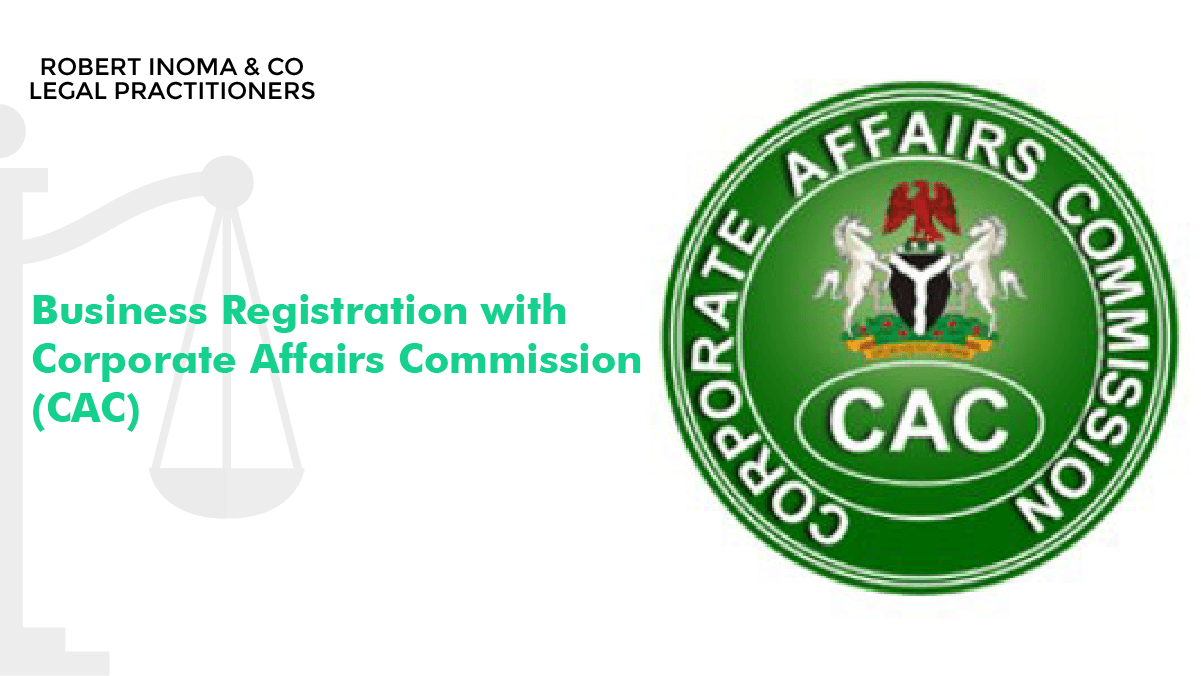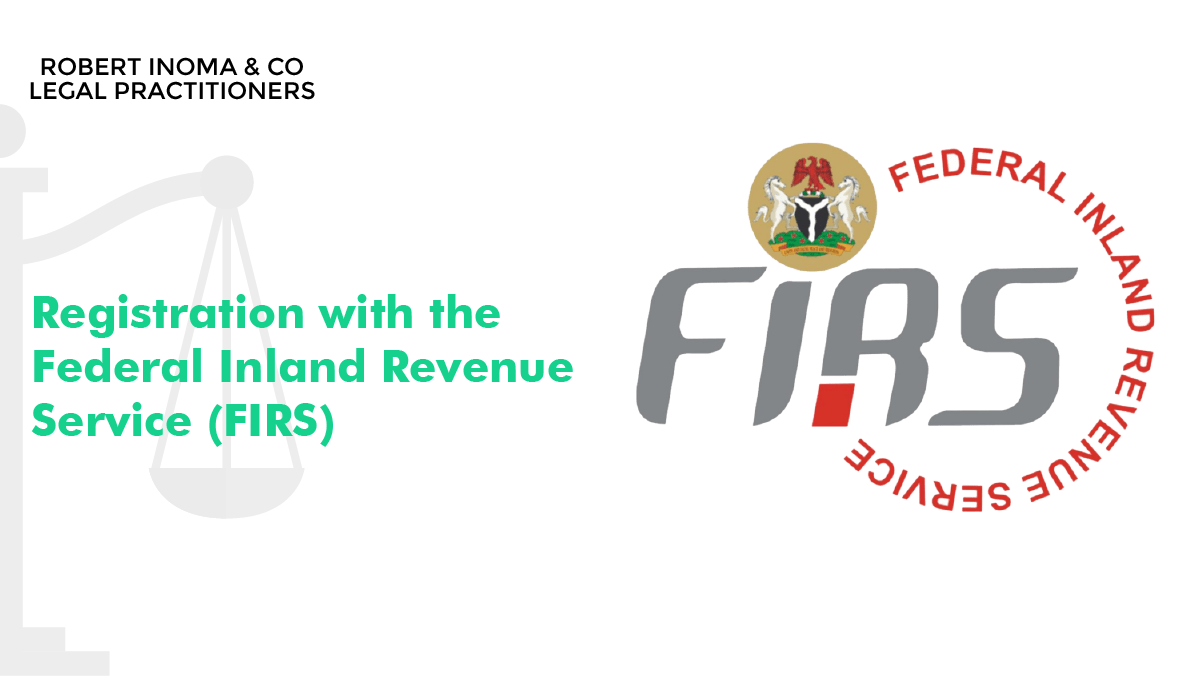Legal Requirements for Starting a Business in Nigeria
Starting a business or company in Nigeria may not be as expensive as starting one in other countries in the world, but there are legal requirements that are needed in order to run it smoothly. Besides having money for your products (capital), and advertising, you must be ready to meet up the legal requirements.
Meeting these requirements will allow your business to run smoothly, protect it to some degree, make it trustworthy, and prevent legal issues. These requirements have several businesses especially for organizations that plan to expand in Nigeria. They also apply for foreign brands setting up a company in Nigeria. The legal requirements for starting a business in Nigeria are not complicated or difficult to do. They include; Company registration, FIRS registration, State IRS registration, business permit (for foreigners), and Import/export permit.
Contents
Business Registration with Corporate Affairs Commission (CAC)
 In legally setting up a company in Nigeria, the first step to take is to register the company with the Corporate Affairs Commission (CAC). The C.A.C is established by the Companies and Allied Matters Act LFN 1990, and an essential requirement in setting up a business in Nigeria.
In legally setting up a company in Nigeria, the first step to take is to register the company with the Corporate Affairs Commission (CAC). The C.A.C is established by the Companies and Allied Matters Act LFN 1990, and an essential requirement in setting up a business in Nigeria.
Different kinds of companies can be registered in Nigeria, but private individuals or organizations mostly register the company as a private limited liability company (plc). To register a company with CAC, you’ll need to have a certain amount of capital, have a minimum of 2 directors and 2 shareholders, pay a stipulated registration fee, and other requirements. The requirements for business registration by a foreign entity may be slightly different. If the entity does not have the required directors, they can have Nigerian nominee directors appointed to meet up with the statutory requirement.
Benefits of CAC Registration
Whether you’re running a small; business or a multi-national business in Nigeria, there are several benefits to CAC registration. Your business will have a unique registration number that will give it credibility and boost your customer’s trust for your brand. Here are a few benefits of CAC registration in Nigeria.
1. Certificate of Incorporation
By registering your business, you will be issued a certificate of incorporation by the CAC. This certificate will carry your business name and a unique registration number that can be used in all your company’s documents.
2. Reputation
When starting a new business in Nigeria, it is important to note that it could be very difficult for your customers to trust your brand (because it’s new) and even more difficult when it is not registered. Customers feel more confident transacting with a legally registered business in Nigeria especially when your business is based online. Having a registered business would increase the credibility and reputation of your business.
3. Legal Protection
If your business is registered as a limited liability company, you will gain a certain degree of legal protection. You would not be held personally responsible for some accidents and other liabilities that take place in regards to your company.
4. Loans
It is easier to obtain a business loan when your business is registered with CAC. The application process would be easier because your business will be seen as credible and thereby trustworthy. Robert Inoma & Co can help in your registering your business with CAC in Nigeria. Contact us today.
Nigeria Investment Promotion Commission (NIPC) Registration
The Nigeria Investment Promotion Commission (NIPC) is the governmental body in charge of promoting foreign investment in Nigeria. Registration to the NIPC can be done when a company has foreign participation. The NIPC issues a certificate to the company but it however has to be registered by CAC first. Additional requirements are also requested, depending on the nature of the company and its imported capital. All foreign companies must register under the NIPC.
Foreign Investors enjoy several benefits by registering with the NIPC, in terms of returns on investments and other benefits. However, according to the Nigerian Investment Promotion Commission Act, no foreign enterprise shall be nationalized or expropriated by any Government of the Federation without registration with the NIPC.
Registration with the Federal Inland Revenue Service(FIRS)
 Another legal requirement for starting a business in Nigeria is registration with the Federal Inland Revenue Service. Registering with the FIRS enables your business to pay the required federal taxes. Before certain organizations would be in partnership or any form of business with you, they may require your tax clearance certificate (TCC). Besides that, evading tax payment may get you in trouble with the FIRS, and this can be disastrous to your business.
Another legal requirement for starting a business in Nigeria is registration with the Federal Inland Revenue Service. Registering with the FIRS enables your business to pay the required federal taxes. Before certain organizations would be in partnership or any form of business with you, they may require your tax clearance certificate (TCC). Besides that, evading tax payment may get you in trouble with the FIRS, and this can be disastrous to your business.
After registering with the FIRS- which Robert Inoma & Co can assist you with, the FIRS will issue three (3) essential documents to your organization; a Tax Clearance Certificate (TCC), Tax Identification Number (TIN), and Value Added Tax (VAT). By law, every new company in Nigeria must be registered under the FIRS in order to obtain those documents. Your tax identification number (TIN) will be used in remitting your company’s tax. Every governmental organization in Nigeria will require evidence of your company’s tax clearance certificate before processing any document on behalf of your company.
Registration with the State and Local Government Tax Offices
Your company also has to be registered with the states IRS when setting up a business in Nigeria. By law, all businesses in Nigeria with a physical office or store are required to pay tax to the local government tax authority. Avoiding this could pose serious problems for your business, so, as soon as possible, locate their office and get registered. Avoiding tax payment can put you in trouble with the state’s IRS, so it is essential to register. However, this is only required for businesses with physical offices, so digital operating companies are exempted from paying this tax, except otherwise stated. Your company also needs to register your staff with the state IRS to pay the necessary tax, such as the personal income tax, as well as other taxes required for your company.
Business Permit
For businesses owned by foreigners but located in Nigeria, a business permit is required in starting a business. A business permit allows the foreigner to run a business in Nigeria. The business permit document is issued by the Ministry of Interiors. This requirement only applies to foreigners who want to run a business in Nigeria. A business that is equally owned by both a Nigerian and a foreigner is also exempted from this requirement.
Expatriate Quota
This is another permit being issued by the Ministry of Interiors upon the application of the company for the benefit of any foreigner seeking to work in Nigeria, either permanently as the owner of the business or temporarily as the employee. The application for expatriate quota in Nigeria must be accompanied by the prescribed documents.
Combined Expatriate Residence Permit and Aliens Card (CERPAC)
This is also a document required for foreigners who want to set up a business in Nigeria. The Combined Expatriate Residence Permit and Aliens Card (CERPAC) is a valid residential or work permit for foreigners in Nigeria. CERPAC gives the foreigner the right to work and own a business in Nigeria. It is issued by the Comptroller General of the Nigerian Immigration Service or Comptroller of Immigration Service in the state commands.
Export/Import Permit
An export or import permit is an essential requirement largely based on the industry or business sector, about your business. For food products and pharmaceutical imports in Nigeria, your business will need a valid permit from the National Agency for Food and Drug Administration and Control (NAFDAC). For telecommunications, your business will need a permit from the Nigerian Communication Commission (NCC). While for companies into importation and exportation of Nigerian mineral resources, a license needs to be obtained from the Ministry of Mines and Steel Development.
Depending on your sector, either as a foreign-owned or Nigerian owned business, you may need to obtain the required permit in your sector before you can export or import products.
Bank Account Opening & Capital Importation
Another legal requirement needed in setting up a business in Nigeria is opening a company bank account. In Nigeria, there are different microfinance and commercial banks, but all of them have the same requirements for opening a company’s bank account. These requirements include; incorporation certificate (CAC certificate) and documents, valid mode of identification, account opening package duly completed and signed, company’s board resolution authorizing an account to be opened, Tax Identification Number (TIN), and Bank Verification Number (BVN).
Foreign companies also need a Nigerian bank account to transact, so they need a resident director to be able to open a company bank account. Foreign or international entities need a Nigerian director or to be in charge of the company’s bank account.
After opening a corporate bank account, the new company can choose to apply for a business loan from the banks or import money through equity. When the capital arrives into the company’s account, the authorized dealer will issue a certificate of capital importation to the company within 48 hours. The certificate of capital importation allows the company to return capital and profits in the future without any issue.
Conclusion
According to Nigerian law, only accredited individuals or law firms like Robert Inoma & Co can carry out most of the legal requirements on your behalf. You need the following to start your business: CAC registration, FIRS registration & state IRS registration to pay taxes, Expatriate Quota, CERPAC, and Business permit for foreigners, company account, and import and export permit.
You also have the duty to provide insurance for both your company and its staff and register all your intellectual rights pertaining to your business, such as patent, trademark, and industrial design, where applicable. Registering your intellectual properties will enable you to avoid plagiarism, gain brand awareness, and enable you to take legal actions against infringement. You also need to fulfill the requirement pertaining to employment and labor law. Businesses that intend to exist successfully for a long time should also ensure to pay all taxes at the appropriate time to avoid issues from the federal or state IRS.
Let us help you in legally setting up your business in Nigeria. Robert Inoma & Co is an accredited law firm in Nigeria with professional lawyers with decades of experience. Contact us to set up your business legally in Nigeria.




